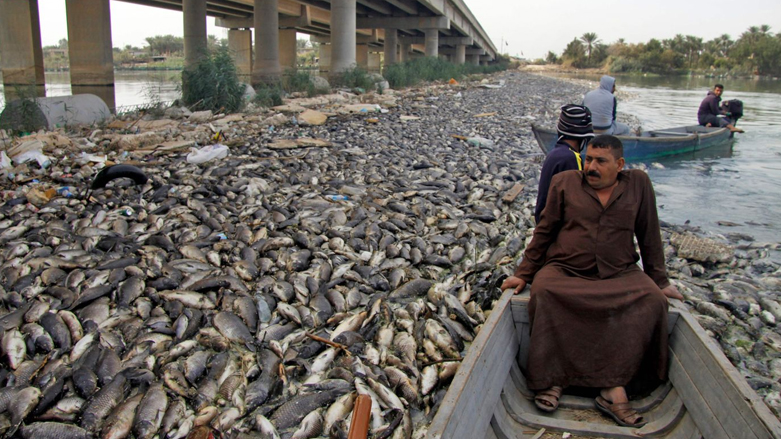High level of pollution in Iraqi water samples where thousands of fish died: WHO

ERBIL (Kurdistan 24) – Recent lab tests show severe water pollution in farms where large schools of fish died earlier this month in the south of Iraq, the World Health Organization (WHO) said on Tuesday.
Laboratory tests in Amman, Jordan “conducted on water samples” revealed the “contamination of water” from the Euphrates River with “high content of coliforms, heavy metals, and high concentration of ammonia,” according to a WHO statement received by Kurdistan 24.
WHO health experts and the Iraqi Ministry of Health and Environment (MoHE) say these substances are toxic to fish but do not pose a threat to humans.
In October, residents of rural areas north of Baghdad reported witnessing mass deaths of fish on the Tigris River. Early November, the same occurrence was also reported in Babil province, immediately south of the capital, but on the Euphrates River.
The Ministry of Agriculture (MoA) sampled dead fish and found infections on the gills. Bacterial gill disease occurs when certain types of fish live under harsh climate conditions.
After the string of incidents, local authorities requested the WHO’s aid to conduct laboratory investigations “to assess the likely effects of the fish death on humans and the environment.”
The WHO is currently conducting a second investigation, testing samples of dead fish from the farms and looking into the possibility of a viral infection being the cause of the deaths of thousands of fish along the river.
The results of this second test are due next week.
“The WHO continues to work with its MoH counterparts to develop appropriate preventive measures to effectively mitigate and respond to future incidents of this nature,” the organization’s statement concluded.
Editing by Nadia Riva
